British-Sri Lanka School of Pathology, October 2020
The British Division of the International Academy of Pathology organised its first online teaching event in October 2020. After a string of cancellations due to unforeseen events, the British-Sri Lanka School of pathology finally took place as an online event during mid October 2020, as part of the 7th International Conference (ICON-2020), locally co-ordinated by the College of Pathologists of Sri Lanka.
BDIAP International Secretary Dr Eduardo Calonje reflects on this successful and very well attended event: 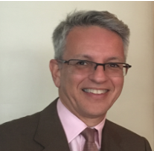
“At the end of 2018 just before becoming International Secretary of the BDIAP, I was asked to help organise the British-Sri Lanka School of Pathology which takes place every two years. It is a task that I undertook with great pleasure as the International Schools of Pathology created by the BDIAP have always been very successful. I had already participated as lecturer in a number of meetings organised by the Schools of Pathology in several countries including a few years back, Sri Lanka. We started working on the programme and by the beginning of 2019 in close collaboration with my Sri Lankan colleagues we managed to put together an excellent programme covering haematopathology, dermatopathology and cytology. My colleagues in the UK, Marie Calaminici, Stefan Dojcinov and Ashish Chandra (later replaced by Ula Mahadeva as the latter was already engaged during the newly scheduled date) agreed along with the local faculty to deliver the lectures on the chosen subjects. The planned dates for the meeting were 22nd-24th of August 2019. We were all looking forward to an excellent meeting, wonderful hospitality and the possibility of visiting a beautiful country whose people are always welcoming.
Alas, it was not to be. A few months before our trip, devastating terrorist attacks took place in Sri Lanka and with great sadness following the advice of the foreign office, we decided to postpone the meeting until October 15th-17th 2020. We were again very excited about finally visiting Sri-Lanka but in February, the pandemic struck. It became clear that it would be impossible to host the meeting there in October and postponing it again was not an option.
At the BDIAP council meeting we decided to propose to our colleagues in Sri Lanka to host the meeting online with pre-recorded lectures during the same dates as originally agreed. They embraced our proposal with gusto and the preparations started.
To me this was a daunting task as I have never participated on online meetings and had never recorded lectures before. We were lucky as the BDIAP had already established links with a company called AV and Data run by Geoff Cross. He is s true professional and soon after I established communication with him, my fears and doubts were put to rest. He organised kits to be sent to lecturers with clear instructions available on a recorded link. To further facilitate the task, he was always available on the phone whenever needed, even in the evenings!! I must admit that even with his guidance and fool proof instructions, I had to record a couple of my 9 lectures more than once. I hated the first recordings as it is not easy to get used to talking to a screen and not having direct interaction with the audience. I do not think that I have overcome this entirely but I kept on saying to myself that it was for a good cause. After every evening for more than a week fulfilling the task, I finished recording. As my internet at home is so slow each lecture took up to three hours to uploaded and sent to Geoff for editing.
When I saw the impressive results after Geoff ‘s wonderful editing job I must admit I finally became convinced the effort had not been in vain. My colleagues all sent their lectures in a timely manner and the meeting was successfully run during the planned dates. We all participated in Q&A sessions at the end of our lectures. I was pleasantly surprised that there were many questions to answer as opposed to life lectures where people are often too shy to ask.
About 180 delegates registered for the meeting but I understand that 150 extra people managed to get hold of the log in details.
Although when this enterprise started I had many misgivings about the project, I am glad we did it and the meeting was a success. I do not think that this format can replace live meetings and the social and professional interaction that goes with them but it is a very good option in times of crisis like this.”
The lecture recordings from this course will be available to BDIAP members in due course.
Course Faculty and programme
Dr Eduardo Calonje, St John’s Institute of Dermatopathology, London
 Clinical and microscopic correlation of skin lesions
Clinical and microscopic correlation of skin lesions - Approach to skin related soft tissue tumours
- Approach to skin related vascular tumours
- Panniculitis; the histopathologist’s role
- Naevi vs. Melanoma; diagnostic approach
- Difficult melanomas
- Diagnosing cutaneous lymphomas, the histopathologist’s dilemma
- Pitfalls in the diagnosis of mycosis fungoides
Professor Stefan Dojcinov, All Wales Lymphoma Panel, Swansea Bay University Health Board
 Infective and other reactive lympho-proliferative diseases
Infective and other reactive lympho-proliferative diseases - Diagnostic pitfalls in histopathology of lymphoma
- Approach to low grade lymphomas
- Mantle cell lymphoma: update on diagnosis, risk stratification, and management
- Nodal and splenic marginal zone lymphoma; a case oriented session
- Update on Hodgkin lymphoma and EBV related lymphoproliferative disease
- Case discussion – lymphoproliferative diseases
Professor Maria Calaminici, Barts NHS Trust, London
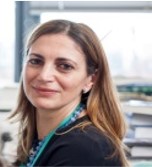 Approach to histopathological assessment of lymph nodes
Approach to histopathological assessment of lymph nodes- The 2016 revision of the World Health Organization classification of lymphoid neoplasms; an overview
- Approach to the diagnosis of DLBCL with current concepts
- Double hit lymphoma/Gray zone lymphoma
- Gastrointestinal lymphoma and the differential diagnosis
- Case discussion – lymphoproliferative diseases
- Introduction to EQA for Lymphoma (Marie Calaminici and Stefan Dojcinov)
Dr Ula Mahdeva, Guy's and St. Thomas' NHS Foundation Trust, London
 Pitfalls in respiratory tract cytology
Pitfalls in respiratory tract cytology - Diagnostic approach to urine cytology
- Case-based discussion on Glandular neoplasia in Pap smears of the Uterine Cervix
- Case-based discussion on Infectious Disease
- Fungal diagnostics for the Histopathologist
- Helminth diagnostics for the Histopathologist
- An update on salivary gland cytology including implications of the recent update of the 2017 WHO salivary gland tumours on cytology
- Pitfalls in effusion cytology
Dr Harshima Wijesinghe, University of Colombo, Sri Lanka
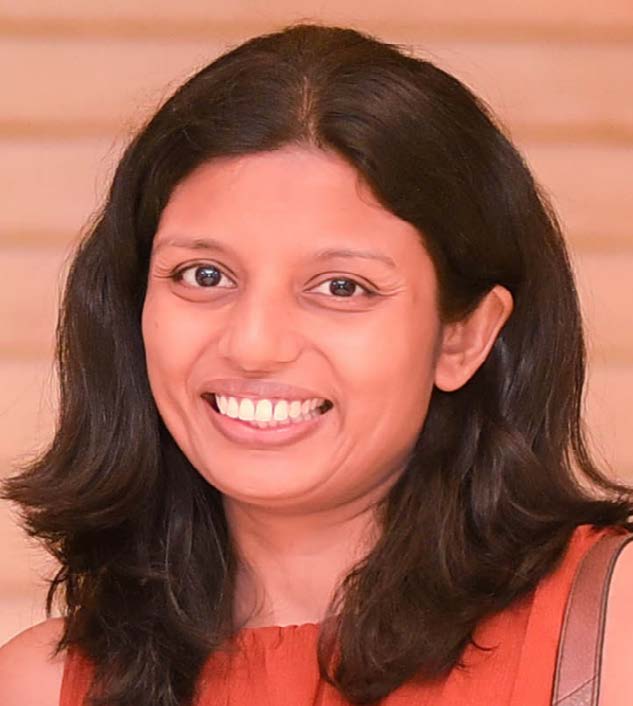 Approach to granulomatous inflammation in the skin; a Sri Lankan perspective
Approach to granulomatous inflammation in the skin; a Sri Lankan perspective
Dr Cherine Sosai, Colombo South Teaching Hospital, Sri Lanka
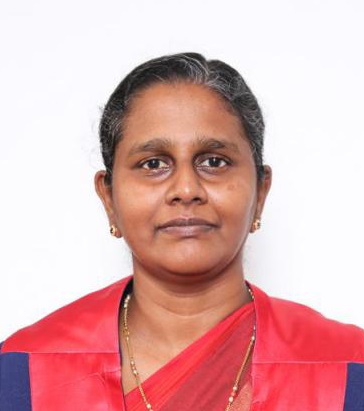 Diagnostic utility of cytopathology in Sri Lanka; case based discussion
Diagnostic utility of cytopathology in Sri Lanka; case based discussion
Professor Chandu de Silva, University of Colombo, Sri Lanka
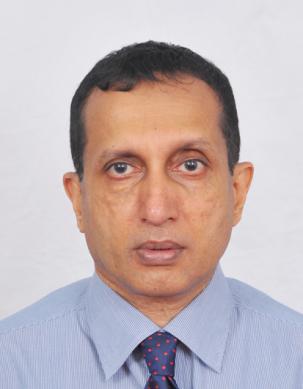 Mycoses Fungoides - the Sri Lankan perspective. Is it a different cutaneous lymphoma or an inflammatory disorder?
Mycoses Fungoides - the Sri Lankan perspective. Is it a different cutaneous lymphoma or an inflammatory disorder?